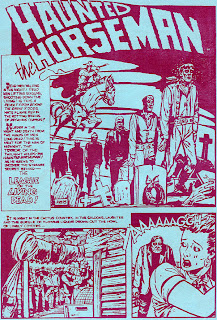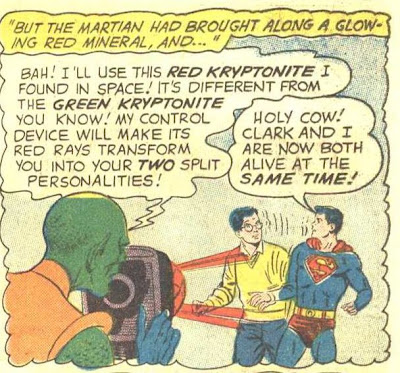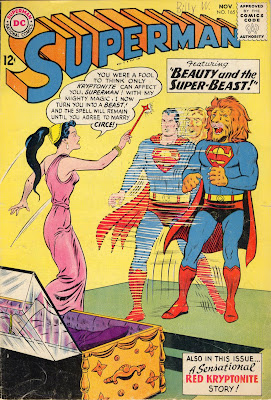
Number 241
John Stanley chills us
It seems right to show this chilling tale on a day when in my neighborhood the thermometer peaks around 0 degrees F. It's from the 1962 Dell Giant, Tales From The Tomb, written by John Stanley, scanned from the copy I bought 45 years ago. Stanley, who had written and guided Little Lulu through that comic's classic years, had stayed behind at Dell when Western Publishing took their licensees and most of their talent and split off into Gold Key Comics. Despite the promise on the cover, Tomb wasn't what I thought of as a horror comic, but more like a collection of stories told by kids around a campfire. Some of Stanley's work--the Oona Goosepimple stories from Nancy, for example--reminded me of Charles Addams. Stanley had a sometimes macabre sense of humor, and stories of this style would appeal to him. Tales From The Tomb is probably what DC's Plop! should have been a decade later.
Stanley, who had written and guided Little Lulu through that comic's classic years, had stayed behind at Dell when Western Publishing took their licensees and most of their talent and split off into Gold Key Comics. Despite the promise on the cover, Tomb wasn't what I thought of as a horror comic, but more like a collection of stories told by kids around a campfire. Some of Stanley's work--the Oona Goosepimple stories from Nancy, for example--reminded me of Charles Addams. Stanley had a sometimes macabre sense of humor, and stories of this style would appeal to him. Tales From The Tomb is probably what DC's Plop! should have been a decade later.
As good as Stanley's writing is, the anonymous art is OK, not great. It likely scuttled this title.
These three shorties, vignettes, really, are typical of the weird humor of Tomb. The black-and-white one-pagers are the inside front and back covers respectively. The story, "Turnabout," is one of the shorter stories in the book, and is told in as few words as possible. The grim but funny joke it tells is beyond logic, and is told in visuals rather than dialogue or captions.
Finally, it's the end of another year. I'd like to thank Pappy's readers for making this a very successful year for this blog. HAPPY NEW YEAR, everybody.
Your Pappy loves you!





































